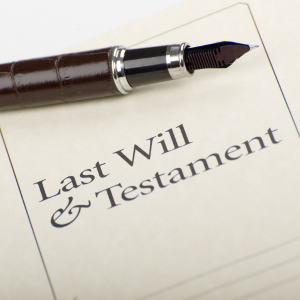|
 Wills are critical documents. Indeed, a Will has been described as the biggest cheque you will ever write, disposing of everything you own at your death. A well-drafted Will can, among other things:
Wills are critical documents. Indeed, a Will has been described as the biggest cheque you will ever write, disposing of everything you own at your death. A well-drafted Will can, among other things:
- reduce the amount of Inheritance Tax payable from your estate – sometimes substantially.
- reduce the possibility of disputes and claims on your estate by unhappy beneficiaries or those who believe they have been overlooked altogether.
- provide considerable peace of mind that you have done everything possible to ensure your loved ones’ security.
- ensure that specific items or assets pass to those you wish to have them.
- appoint guardians for any minor children.
But have you considered what you should never put in your Will (UK)?
What you should never put in your Will UK
However, there are certain things that it’s often best not to include in your Will. Here are some good examples.
Conditional gifts
The most common example of a conditional gift is a gift to a child or grandchild upon reaching a certain age. Usually, people make such ‘contingent’ gifts with the best intentions. But sometimes, conditions are designed to maintain a degree of ongoing control over the beneficiary, often referred to as ‘dead hand control’.
When writing your Will, always take advice before including contingent gifts. Not only can they create real complexity, but the gift or the condition attached to it can fail if it:
- creates uncertainty;
- is impossible to perform;
- is illegal or against public policy; or
- conflicts (or is incompatible) with the gift to the beneficiary or other gifts or provisions in the Will.
See also: Conditional Gifts in Wills
Gifts to pets
 For many people, their pet is a loyal companion, and understandably, they will wish to do everything possible to ensure the pet’s future and well-being once they are no longer around. However, as far as the law is concerned, an animal is a personal chattel (possession) in the same way as an armchair, your car, or a family heirloom. And it’s a surprisingly common misconception that you can leave money or even your house to your pet. But even though they cannot be a beneficiary in your Will, just like any property, you can leave your pet to somebody else.
For many people, their pet is a loyal companion, and understandably, they will wish to do everything possible to ensure the pet’s future and well-being once they are no longer around. However, as far as the law is concerned, an animal is a personal chattel (possession) in the same way as an armchair, your car, or a family heirloom. And it’s a surprisingly common misconception that you can leave money or even your house to your pet. But even though they cannot be a beneficiary in your Will, just like any property, you can leave your pet to somebody else.
See also: What happens to pets when you die?
Jointly held assets
Many of us hold one or more assets jointly with somebody else, typically with our spouse or partner. The most common examples are our house or a bank account.
If property is held jointly, the right of survivorship applies, meaning that when one joint owner dies, the survivor automatically owns all of the property. [But see: Joint tenants vs tenants in common]. That applies irrespective of the terms of your Will. Accordingly, if you are happy to continue holding the property jointly, there’s no reason to include it in your Will.
Business assets
If you have a financial interest in a business, the default position when you die depends on the structure of the business, not necessarily on the terms of your Will. So, if you own business assets, always take advice before making a Will.
See also: What happens to my business if I die?
Life insurance and pension benefits
Life insurance policies and pension plans usually require the holder to nominate a beneficiary to receive the death benefits under the plan or policy. When you die, the trustees will usually exercise their discretion in favour of your nominated beneficiary, who will then receive the benefits. In other words, they rarely pass under the terms of your Will.
What you should never put in your Will (UK): Funeral arrangements
 Including a short clause relating to your chosen type of funeral is very common in your Will. However, many people do not realise that such clauses are no more than a statement of your wishes and are not legally binding.
Including a short clause relating to your chosen type of funeral is very common in your Will. However, many people do not realise that such clauses are no more than a statement of your wishes and are not legally binding.
Technically, your executors have responsibility for arranging a funeral as they have ‘ownership’ of your body. However, in most cases, funerals are arranged by family members, irrespective of whether they are executors appointed by your Will.
Another consideration is that funeral arrangements are often made before anyone knows the contents of the Will. Therefore, the best course of action is to discuss your wishes with your loved ones. In addition, it can be a good idea to record them in a separate ‘letter of wishes’ stored with your Will. Doing so means you can simply substitute a new letter if your wishes change over time.

